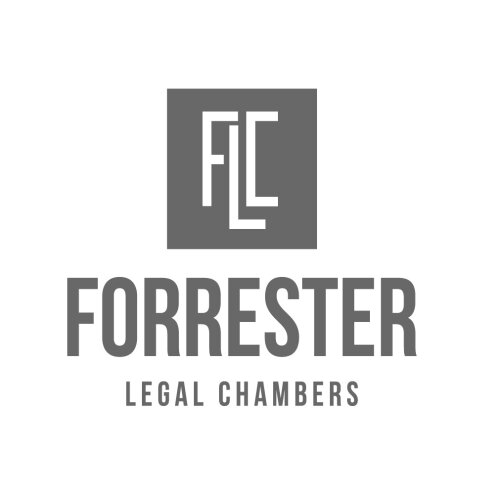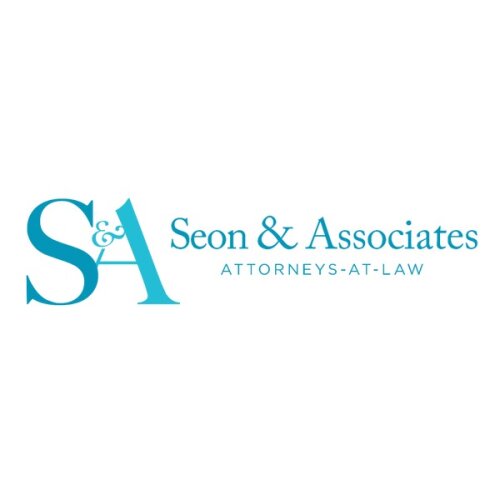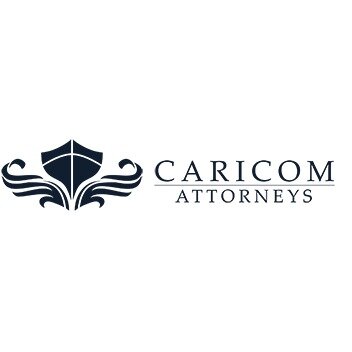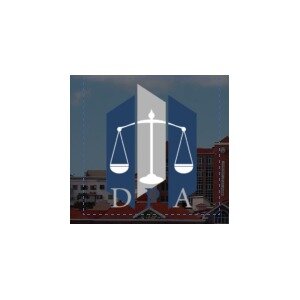Best Financial Services Regulation Lawyers in St. George's
Share your needs with us, get contacted by law firms.
Free. Takes 2 min.
List of the best lawyers in St. George's, Grenada
About Financial Services Regulation Law in St. George's, Grenada
Financial Services Regulation in St. George's, Grenada, is an essential facet of the country’s legal and economic framework. The financial services sector in Grenada includes a diverse array of services such as banking, insurance, financial advising, and investment management. These services are subject to a comprehensive regulatory environment designed to ensure stability, transparency, and integrity within the financial market. The regulation is primarily overseen by the Grenada Authority for the Regulation of Financial Institutions (GARFIN), which is tasked with enforcing compliance with established laws and safeguarding the interests of consumers and investors.
Why You May Need a Lawyer
There are several scenarios where engaging a lawyer specializing in Financial Services Regulation may be necessary. Key situations include:
- Establishing a financial services company and ensuring compliance with local regulatory requirements.
- Navigating complex regulatory frameworks and ensuring operational compliance with multiple sets of financial rules.
- Responding to regulatory investigations or enforcement actions initiated by GARFIN or other authorities.
- Litigating disputes related to financial services, such as disagreements with clients, other businesses, or governmental agencies.
- Advising on mergers, acquisitions, or restructurings within the financial services industry.
Local Laws Overview
Financial Services Regulation in Grenada is governed by several key pieces of legislation. These include:
- The Banking Act, which regulates the establishment and operation of financial institutions.
- The Insurance Act, outlining the licensing and operation of insurance companies and brokers.
- The International Companies Act, applicable to businesses that engage in international transactions.
- The Anti-Money Laundering and Combating the Financing of Terrorism Act, enforcing strict controls to prevent illicit financial activities.
- The Financial Intelligence Unit Act, establishing bodies for monitoring and reporting suspicious financial activities.
These laws are designed to maintain the integrity of Grenada's financial system and protect stakeholders from fraud and financial mismanagement.
Frequently Asked Questions
What are the primary regulatory bodies overseeing financial services in Grenada?
The primary regulatory bodies are the Grenada Authority for the Regulation of Financial Institutions (GARFIN) and the Financial Intelligence Unit (FIU).
What is the process for obtaining a financial services license in Grenada?
The process typically involves submitting an application to GARFIN, providing detailed information about the business structure, compliance procedures, and meeting the required financial adequacy standards.
What should I do if my financial services business is selected for a compliance audit?
It's advisable to engage a lawyer to guide you through the audit process, ensure your documentation is in order, and advise on best practices for compliance.
How can I ensure my financial services firm complies with anti-money laundering regulations?
Implement a robust compliance program, conduct regular training, and engage legal counsel familiar with the latest requirements in anti-money laundering practices.
What penalties can be imposed for non-compliance with financial regulations?
Penalties for non-compliance can include fines, revocation of licenses, and in severe cases, criminal charges against the business or its executives.
Can foreign companies provide financial services in Grenada?
Yes, foreign companies can operate in Grenada, but they must comply with local licensing and regulatory requirements.
What are the requirements for reporting financial transactions in Grenada?
All financial transactions must adhere to the guidelines set out under the Anti-Money Laundering Act, including thresholds for reporting suspicious activities.
Is it mandatory to have a compliance officer in a financial services firm?
Yes, regulatory frameworks require firms to appoint a compliance officer responsible for ensuring adherence to financial regulations.
What role does the Financial Intelligence Unit (FIU) play in financial regulation?
The FIU is tasked with monitoring transactions, investigating suspicious activities, and facilitating communication between financial institutions and law enforcement agencies.
How often must financial services firms report to the regulatory bodies?
Reporting frequency can vary depending on the service type but commonly includes regular submission of financial statements and compliance reports to GARFIN.
Additional Resources
For those seeking further information or support, consider utilizing the following resources:
- Grenada Authority for the Regulation of Financial Institutions (GARFIN)
- The Grenada Bar Association for legal referrals
- Official governmental websites offering access to financial regulation documentation
- Local financial services organizations that can provide peer support and guidance
Next Steps
If you require legal assistance in Financial Services Regulation, consider the following next steps:
- Identify your specific legal needs and outline any regulatory questions or compliance issues you face.
- Consult with a reputable law firm in Grenada that specializes in financial services regulation; the Grenada Bar Association can provide recommendations.
- Gather your company's documents such as application records, compliance plans, and financial statements to prepare for the consultation.
- Discuss your situation with the lawyer, exploring potential legal strategies and solutions to ensure regulatory compliance and address any challenges.
- Regularly update yourself on new regulatory developments to keep your business practices aligned with current laws.
Lawzana helps you find the best lawyers and law firms in St. George's through a curated and pre-screened list of qualified legal professionals. Our platform offers rankings and detailed profiles of attorneys and law firms, allowing you to compare based on practice areas, including Financial Services Regulation, experience, and client feedback.
Each profile includes a description of the firm's areas of practice, client reviews, team members and partners, year of establishment, spoken languages, office locations, contact information, social media presence, and any published articles or resources. Most firms on our platform speak English and are experienced in both local and international legal matters.
Get a quote from top-rated law firms in St. George's, Grenada — quickly, securely, and without unnecessary hassle.
Disclaimer:
The information provided on this page is for general informational purposes only and does not constitute legal advice. While we strive to ensure the accuracy and relevance of the content, legal information may change over time, and interpretations of the law can vary. You should always consult with a qualified legal professional for advice specific to your situation.
We disclaim all liability for actions taken or not taken based on the content of this page. If you believe any information is incorrect or outdated, please contact us, and we will review and update it where appropriate.












